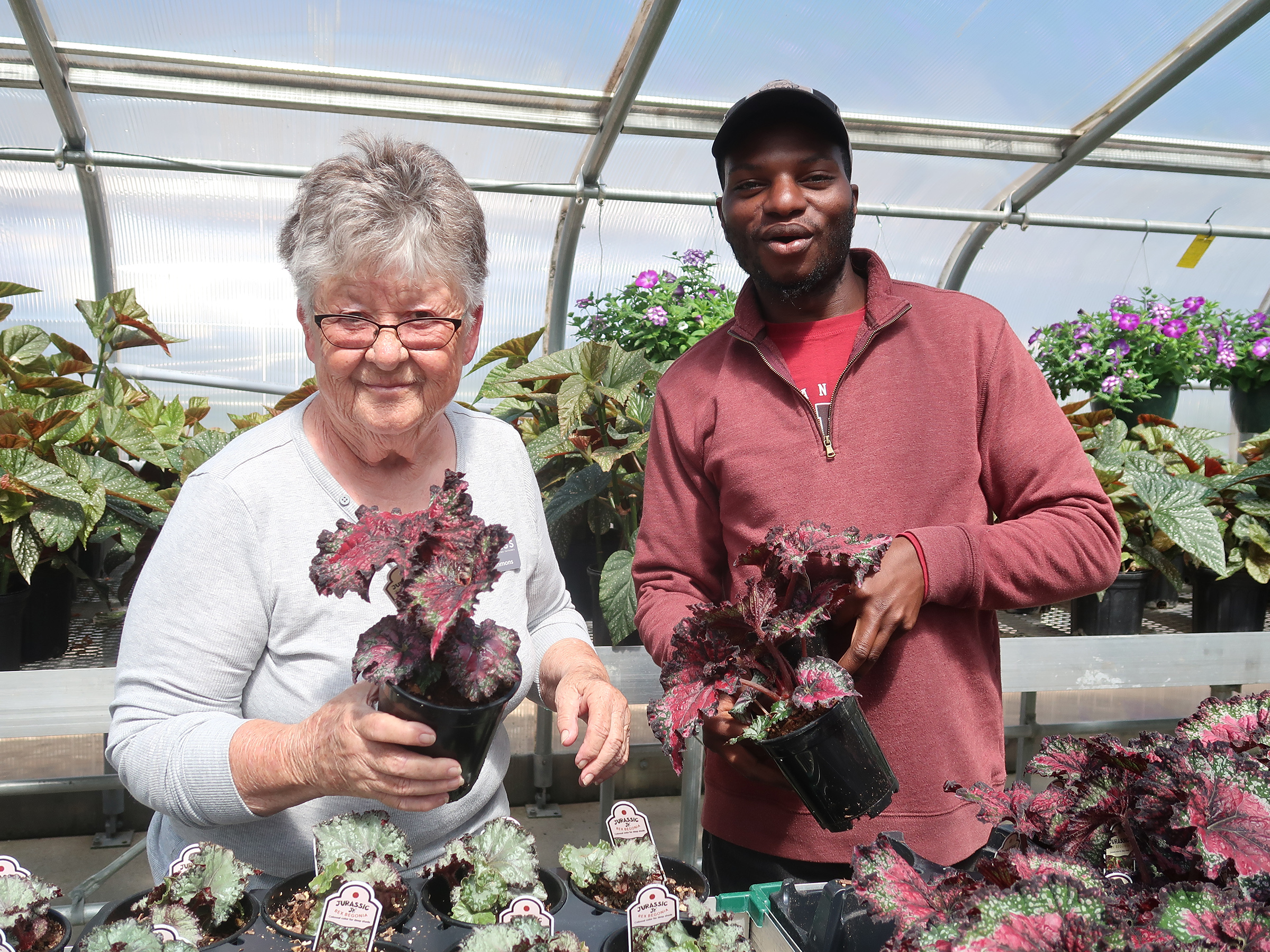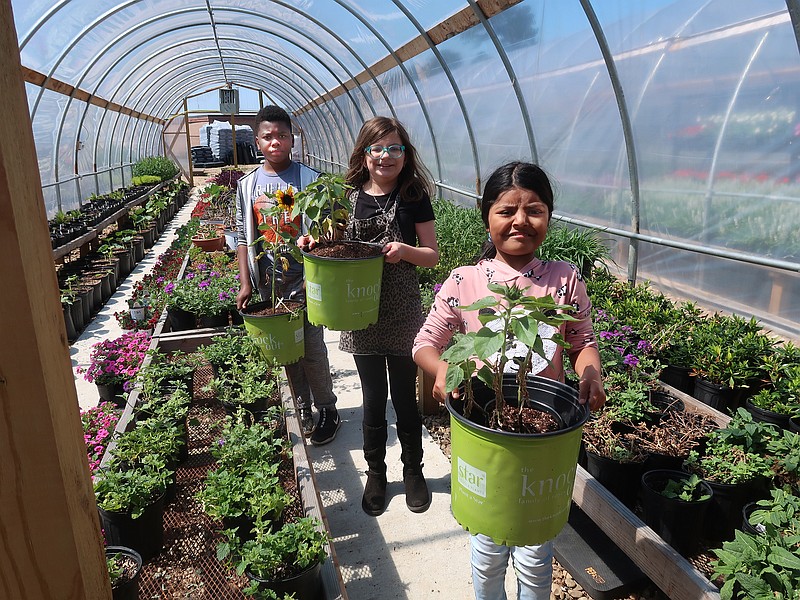Every gardener knows that to have a successful garden, you need to plant a seed, give it the nutrients it needs to thrive and watch it grow before you can reap the rewards. The same applies to a youth gardening program. You plant a seed of knowledge, give youngsters the tools they need to grow and then watch them succeed.
That is what is happening at the ACCESS Academy in Little Rock.
ACCESS is a 501(c)(3) nonprofit offering evaluation services, full-time education, therapy, training and activities for individuals with developmental delays and learning disabilities. It was founded in 1994 with the ACCESS Stella Boyle Smith Early Childhood campus at 10618 Breckenridge Drive in Little Rock. Today there are two campuses providing a wealth of services.
The ACCESS Academy and Young Adult Campus at 1500 N. Mississippi St. serves more than 150 individuals with special needs. This campus has students from kindergarten to young adults, and all students participate weekly in the gardening program — ACCESS Gardens.
The gardening program involves a lot more than growing plants. While ACCESS Gardens do produce an abundance of high-quality plants for sale to the public, they also are teaching young people lifelong skills. There is a wealth of statistics that show how youth gardening programs enhance educational success. Gardening encompasses so many things — from patience to perseverance, nurturing a living thing and connecting with the living world, physical exercise — and it gives students a sense of accomplishment.
ROOM TO GROW
On the Mississippi Street campus, the ACCESS gardening program has one greenhouse and two unheated high tunnels where students grow bedding plants and perennials from cuttings, plugs and/or transplants. As the weather warms up and young plants begin to expand, many are moved to holding beds adjacent to the greenhouses.
A separate greenhouse houses the HOPE project (Herbs Offering Personal Enrichment). In this greenhouse, a hydroponic system is set up to grow herbs, with a preponderance of basil. (Hydroponic gardening is a system for growing plants in water rather than soil.)
The school has created a partnership with Taziki's restaurants and provides them fresh herbs weekly. This partnership started almost five years ago. It offers students a wide array of skills, from learning about hydroponic gardening, to harvesting, packaging and delivering a product.
The young gardeners typically provide more than 20 pounds of fresh herbs weekly. The Keet family, which runs Taziki's, supports the HOPE project and in turn gets fresh herbs to serve in family restaurants.
Both programs operate like businesses, teaching skills needed for marketing, customer service, sales and business operations.
BUTTERFLIES
Other horticulture endeavors that are directed more toward in-house learning include raised-bed vegetable gardens and the ACCESS Butterfly Garden Habitat, where students grow plants to attract pollinators. The students can interact with butterflies in all life stages from egg to chrysalis to mature butterfly.
 Norma Simmons and Christopher Canada help ACCESS Academy students learn horticulture and business skills through the ACCESS Gardens program on the campus at 1500 N. Mississippi St. in Little Rock. (Special to the Democrat-Gazette/Janet B. Carson)
Norma Simmons and Christopher Canada help ACCESS Academy students learn horticulture and business skills through the ACCESS Gardens program on the campus at 1500 N. Mississippi St. in Little Rock. (Special to the Democrat-Gazette/Janet B. Carson)
CAREFUL PLANNING
The horticulture program is directed by Norma Simmons with assistance from Christopher Canada, a 2011 graduate of the program. For Canada, the program has come full circle. When he's surrounded by thriving plants, his smile and obvious love of his job are evident. Canada and Simmons make a unique team, both devoted to a calling that is much more than a job to each of them.
In the fall, a horticulture team of students sit down with Simmons and Canada to discuss what plants did well and what they would like to grow the next year.
A few "mother plants" are carried over each year to produce starts for the next season. Night blooming cereus, Mother of Millions and a large collection of begonias have become fan favorites. Saving the mother plant offers Canada and Simmons the opportunity to teach plant propagation, letting the students take the cuttings that produce new plants.
Each year the students try something new. This year, a new heat tolerant geranium is being trialed; and given the popularity of succulents, the team is offering a large array of those. Proven Winners helped the program get started by providing new introductions. While the plant products are no longer donated, the young gardeners continue to sell a wide array of newer Proven Winner plants.
GARDENING SEASON
The gardening season has begun, and people are ready to start planting. The gardeners at the ACCESS Academy and Young Adult Campus will have plants for sale for two months. Not only will shoppers be getting some healthy additions for the garden, they will be supporting an educational program.
You could say that these are plants with a purpose!
